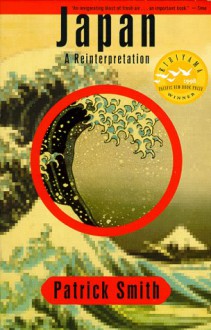Current Affairs/Asian StudiesWinner of the Overseas Press Club Award for the best book on Foreign AffairsA New York Times Notable Book of the year"A stimulating, provocative book . . . fresh and valuable." --The New York Times Book ReviewIn 1868, Japan abruptly transformed itself from a feudal...
show more
Current Affairs/Asian StudiesWinner of the Overseas Press Club Award for the best book on Foreign AffairsA New York Times Notable Book of the year"A stimulating, provocative book . . . fresh and valuable." --The New York Times Book ReviewIn 1868, Japan abruptly transformed itself from a feudal society into a modern industrial state. In 1945, the Japanese switched just as swiftly from imperialism and emperor-worship to a democracy. Today, argues Patrick Smith, Japan is in the midst of equally sudden and important change.In this award-winning book, Smith offers a groundbreaking framework for understanding the Japan of the next millennium. This time, Smith asserts, Japan's transformation is one of consciousness--a reconception by the Japanese of their country and themselves. Drawing on the voices of Japanese artists, educators, leaders, and ordinary citizens, Smith reveals a "hidden history" that challenges the West's focus on Japan as a successfully modernized country. And it is through this unacknowledged history that he shows why the Japanese live in a dysfunctional system that marginalizes women, dissidents, and indigenous peoples; why the "corporate warrior" is a myth; and why the presence of 47,000 American troops persists as a holdover from a previous era. The future of Japan, Smit suggests, lies in its citizens' ability to create new identities and possibilities for themselves--so creating a nation where individual rights matter as much as collective economic success. Authoritative, rich in detail, Japan: A Reinterpretation is our first post-Cold War account of the Japanese and a timely guide to a society whose transformation will have a profound impact on the rest of the world in the coming years."Excellent . . . a penetrating examination."--International Herald Tribune
show less

